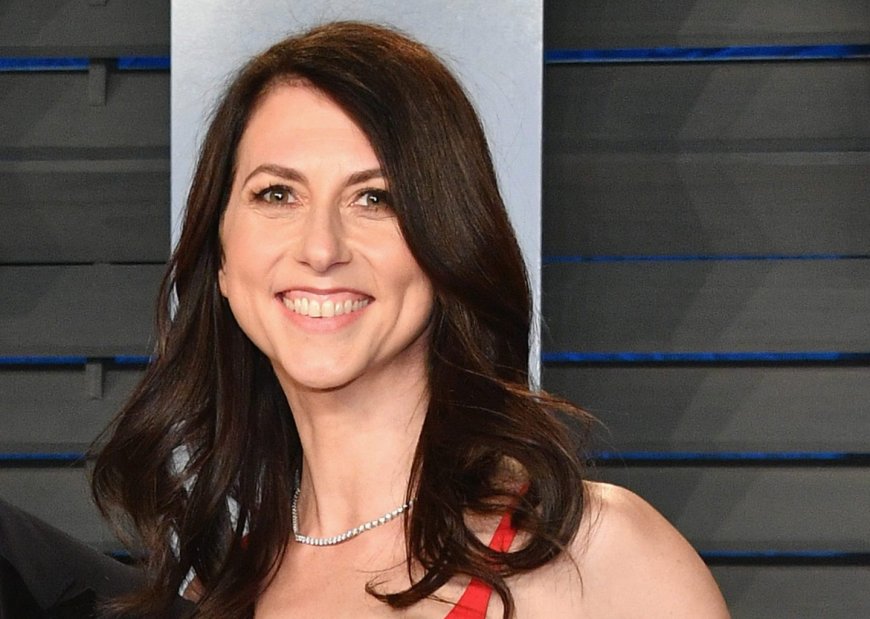MacKenzie Scott’s $19 Billion in Philanthropy Has Been "Transformational" for Nonprofits, New Study Finds
Discover how MacKenzie Scott’s $19 billion in unrestricted giving has transformed nonprofits. A new 3-year study reveals the impact of her unique philanthropic approach.

According to three-year research conducted by the Center for Effective Philanthropy (CEP), the nonprofits and organizations that MacKenzie Scott has supported have seen a "transformational" change as a result of her extraordinary $19 billion in charitable contributions. The research, which was published on February 18, 2025, offers the most thorough examination of how Scott's distinct philanthropic-style has changed the nonprofit industry to date.
Unprecedented Giving with Unrestricted Freedom.
Scott has given more than $19 billion to more than 2,000 organizations since she and Amazon founder Jeff Bezos got divorced. Her dedication to giving big, unrestricted gifts that let recipients spend the money wherever they see fit is what distinguishes her philanthropy. Scott's method gives organizations the freedom to invest in long-term sustainability and address their most urgent needs, in contrast to traditional philanthropy, which frequently has stringent limits or project-specific funding.
Data from almost 1,000 groups that were awarded Scott's grants between 2020 and the beginning of 2024 was examined in the CEP study. The results demonstrate a philanthropic approach that has proven effective and resisted skeptics.
Key Findings from the Study.
1. Transformative Impact: According to organizations, Scott's gifts have had a transformative effect, allowing them to invest in infrastructure, grow their programs, and more successfully carry out their missions. Numerous beneficiaries characterized the money as a transformative experience, enabling them to take chances and develop in previously unattainable ways.
2. No Negative Effects: There have been no negative effects from worries that smaller groups would find it difficult to handle big donations or that other contributors could cut back. In order to assure strategic use of the funds, organizations have instead handled them responsibly, frequently boosting operating budgets, investing in endowments, and employing fundraising consultants.
3. Focus Areas: Education, human services, and social justice have been the main beneficiaries of Scott's charity. The magnitude of her giving is demonstrated by her median grant of $23,000, which is normally examined by CEP.
4. Slow and Strategic expenditures: Recipients have been frugal with their expenditures, and many of them have kept a sizeable amount of the money for years after getting it. For instance, even 2020-receiving groups have only spent 60% of their gifts at the median, demonstrating a focus on long-term planning.
5. Encouraging Wider Philanthropy: Elisha Smith Arrillaga, co-author of the study, highlighted that Scott's strategy highlights the value of unfettered giving, irrespective of the amount donated. She pointed out that even modest contributions can make a big difference for nearby NGOs with little funding.
Handling Criticism and Skepticism.
Scott's charitable endeavors have not been without their detractors. Some were concerned that her substantial, unrestricted gifts would result in poor management or a "funding cliff" whereby organizations deplete their funds and leave an income gap. The ethics of billionaire generosity itself were questioned by others. The CEP investigation, however, could not discover any proof of these problems. Rather, the money has been used by organizations to make plans for the future and increase resilience.
A Novel Approach to Philanthropy.
Scott's strategy defies accepted philanthropic conventions, which frequently impose restrictions or link donations to particular initiatives. She has enabled groups to direct resources where they are most needed by granting them unlimited money, which has encouraged long-term planning and innovation.
According to Elisha Smith Arrillaga, vice president of research at CEP, Scott's approach ought to encourage others to reconsider how they give. "Actually, every single person can do what MacKenzie Scott has done," she stated.
Looking Ahead.
Although the report emphasizes the benefits of Scott's generosity, it also notes that it might take decades to completely comprehend the full extent of her philanthropy. Early findings, however, indicate that her approach has been successful in tackling structural problems and assisting groups that are improving their areas.
Scott's strategy serves as a potent reminder that charity is not just for billionaires, as she continues to donate her fortune. Trust, adaptability, and a dedication to enabling individuals at the forefront of social change are crucial, regardless of the amount—a few hundred dollars or millions.
In addition to changing the lives of innumerable people, MacKenzie Scott's $19 billion donation has revolutionized what it means to be a philanthropist in the twenty-first century.
 Kinyarwanda
Kinyarwanda
 English
English









































































